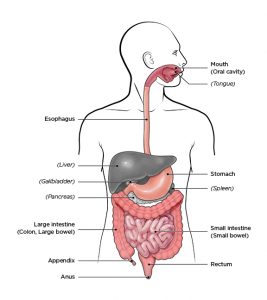Inflammatory Bowel Disease (IBD)
Inflammatory bowel disease (IBD) represents a group of intestinal disorders that cause prolonged inflammation of the digestive tract.
The digestive tract comprises the mouth, esophagus, stomach, small intestine, and large intestine. It’s responsible for breaking down food, extracting the nutrients, and removing any unusable material and waste products.
Inflammation anywhere along the digestive tract disrupts this normal process. IBD can be very painful and disruptive, and in some cases, it may even be life-threatening.

What are the main types of inflammatory bowel disease?
Many diseases are included in this IBD umbrella term. The two most common diseases are ulcerative colitis and Crohn’s disease.
Crohn’s disease can cause inflammation in any part of the digestive tract. However, it mostly affects the tail end of the small intestine.
Ulcerative colitis involves inflammation of the large intestine.
What are the causes of inflammatory bowel disease?
Normally, the immune system defends the body from pathogens (organisms that cause diseases and infections). A bacterial or viral infection of the digestive tract can trigger an immune response.
As the body tries to fight off the invaders, the digestive tract becomes inflamed. When the infection is gone, the inflammation goes away. That’s a healthy response.
IBD can also occur when the inflammation doesn’t go away after the infection is cured. The inflammation may continue for months or even years.
What are the symptoms of inflammatory bowel disease?
Symptoms are vary from nonspecific weakness and pain to specific symptoms. Most alarming symptoms are bloody diarrhoea, abdominal pain, breathlessness due to low hemoglobin, dysphagia etc. Treatment of IBD is to be taken with expert consultation only.


